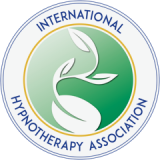We are turning to our Doctors more than ever for solutions to our mental wellbeing
‘Around 1 in 5 (21%) of adults over 16 years of age in Great Britain experienced some form of depression in early 2021, an increase from 19% from late 2020. Rates in early 2021 were more than double those observed before the Covid19 pandemic, where 10% of adults experienced some form of depression.’ https://www.ons.gov.uk
The Telegraph states ‘The new NHS guidance follows a doubling in the number of pills prescribed for depression over the past decade, and an increase in the condition since the pandemic. England has one of the highest rates of anti-depressant use in the world, with one in seven people estimat ed to be taking the pills.’
These are the scary, yet realistic, statistics. The pandemic has affected each and every one of us in some way or another and more people are turning to their GP’s for help.
Experts believe we should look beyond anti-depressants as the solution
New draft guidance from the National Institute for Health and Care Excellence (NICE) says patients with symptoms of depression should be offered a ‘menu’ of options. These include cognitive behavioural therapy (CBT), exercise, mindfulness, meditation, counselling or psychotherapy. https://www.nice.org.uk/guidance/indevelopment/gid-cgwave0725
What is Mindfulness?
The core features of mindfulness practice are being present, in the moment, with an awareness of our thoughts, feelings and emotions. Jon Kabat-Zinn quoted ‘mindfulness means paying attention with awareness in a particular way, on purpose, in the present moment, and non judgmentally.’
Why use Mindfulness techniques?
Our thoughts can have a huge effect on the physical body, our bodies and minds are so closely linked. When our mind is fearful, our bodies follow the fear and we experience the physical effects of stress. High levels of stress can effect our health and well-being.
We often spend our time ruminating about the past, or worrying about the future and treating these thoughts as if they are facts. Noticing these thoughts, being aware of when we have got caught up in our minds story, is mindfulness.
Mindfulness is a way of turning down the volume of endless thoughts going around our head and increasing the volume of our physical sensations to anchor us in the present moment.
The benefits of mindfulness are:
* Living in the present moment, rather than ruminating or worrying.
* Enabling us to respond, rather than react to what’s happening around us. * Noticing habitual thought and behaviour patterns
* Having a healthy acceptance of what’s happening and where we are in the present moment * Being kinder to ourselves
* Mindfulness gives us the ability to let go of stress, anxiety, of constant thinking, of ruminating or worrying.
How can mindfulness support depression?
Mindfulness reduces stress and anxiety which lowers your heart rate and blood pressure. It improves your breathing patterns, your sleep and digestion and it strengthens your immune system.
Mindfulness enables you to be kinder to yourself and others, it improves your confidence and self-esteem and increases empathy and compassion. Mindfulness creates an increased level of calm and clarity, improves your concentration and listening skills, increases resilience in difficult situa tions and improves the ability to quieten the busy mind.
My approach to mindfulness
1:1 sessions
I offer a free consultation to clients looking for mindfulness support. If you decide to work with me, a six week programme will be tailored to support your needs. The programme will be ar ranged weekly, at dates to support both you and I. The sessions can be held at the Tree of Life Centre in Hove, or remotely by Zoom.
Group sessions
I design and run six week mindfulness courses throughout the year. These are run from the Tree of Life in Hove and on Zoom. Please check my courses page for information.
Mindfulness in the workplace
If you run a business and would like your staff to benefit from a mindfulness course please contact me to discuss how I can support you and your staff
To discuss further, or book a Mindfulness session please contact me on 07977 788471 or visit my website:
Useful Further Reading:
The following research article – https://www.ncbi.nlm.nih.gov/pmc/articles/PMC6418017/ – ‘Mindfulness and symptoms of Depression and Anxiety in the general population: The mediating roles of worry, rumination, reappraisal and suppression’ was conducted between 2015-2016 and examined the effects of mindfulness on depression and anxiety.
– The research concludes that mindfulness can improve well-being by reducing symptoms of depression and anxiety. It also states that mindfulness based interventions or meditation exercises focusing specifically on the reduction of worry and rumination may prove especially efficient and beneficial as potential protectors against depression and anxiety in the general population.’
Several years ago I discovered mindfulness. I started by going to the odd drop in session at the local Buddhist centre, reading a couple of books and downloading the headspace app. This then developed into more regular mindfulness practices, and going on retreats. This year I enrolled in the ‘Integrating mindfulness and compassion teacher training’ with Mindfulness UK.
Mindfulness has given me coping strategies to turn to in stressful moments. It has bought an awareness of my habitual thought patterns, accepting them as just that “thought pattens’. I have found that having an awareness of these patterns of thinking enables me to not get hooked onto them.
Mindfulness has also helped me to ‘take in the good’, noting the simple pleasures of the day as well as those bigger, more obvious pleasures. Writing a daily gratitude diary has helped me to fully absorb these positive moments and make them stick.
One of the most beneficial ways in which mindfulness has helped me is that I am better able to respond to events happening around me rather than reacting impulsively.
I treat myself with compassion and kindness, listening to my body and mind and responding ap propriately.
One of my favourite short mindfulness practices which you can easily incorporate into your day is the Three step breathing space.
1 –Give full attention to whatever is happening for you right now – The sounds around you, temperature in the room and smells, including your thoughts, feelings and physical sensations
2 -Develop Awareness of your breath, use the physical sensations of the breath to the anchor yourself in the present moment.
3 -Percieve your body as a whole, bring softness to any areas of discomfort, pain or tension.
I like to finish by bringing my awareness back out, noticing sounds, smells and the temperature of the room.



